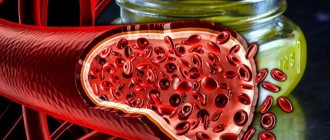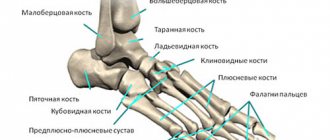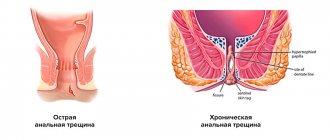Table of contents
- What is menstruation?
- When should a girl get her period?
- When does menopause occur?
- How long does a normal period last?
- Irregular periods - normal or not?
- How much blood do I lose during my period?
- What if I counted more than normal?
- What if, on the contrary, my periods are too scanty?
- Menstruation and contraception - how are they connected?
- If my period comes, does that mean I'm not pregnant?
- Is it normal to experience pain when your period arrives?
- Is PMS normal or not?
- How do periods affect my lifestyle?
- You can't get pregnant if you have sex during your period, right?
- I'm breastfeeding my two year old and I still haven't gotten my period.
- How to tell your daughter about your period?
Precursors of the first menstruation
Female sex hormones - estrogens and progesterone - constantly circulate in different quantities in a woman’s blood1,2. In addition to the uterus, they affect other organs and systems1,2. You will notice changes in them much earlier than menarche. Moreover, by their appearance you can judge how soon your first menstruation will be.
| Breast engorgement | the very first sign that you have begun puberty (puberty)2. The nipple becomes convex and slightly increases in diameter - usually 2 years before menarche2,3. For doctors, this is a kind of guideline. If menstruation never starts, there is cause for concern3 |
| Appearance of pubic hairs | the second harbinger of menstruation in girls. Usually the first hairs “break through” simultaneously with nipple enlargement2. But in the armpits, hair appears much later - about six months before menarche2 |
| Growth spurt | occurs approximately one and a half years before the first menstruation2. During this period, you may become much taller than your peers with a later onset of sexual development. As soon as growth slows down, wait for your first menstruation2 |
| Unreasonable changes in health | weakness, daytime sleepiness, sudden mood swings, headaches, slight dizziness, nausea, heaviness and even pain in the lower abdomen can indicate approaching menstruation. These are not mandatory signs, but some women experience them regularly a few days before their period3 |
Up to contents
What is menstruation?
Not all mammals have a menstrual cycle. In addition to humans, primates, bats and jumpers regularly menstruate. Many other mammals have estrus instead of menstruation, which occurs much less frequently and occurs differently.
The essence of menstruation is that if the egg has not been fertilized, the surface layer of the uterine lining, to which the fertilized egg should attach, must peel off and come out with menstrual blood. This blood is dark and thick, red-brown, and it does not clot because it contains so many enzymes. However, if you have menstruation, this does not mean that you are ovulating. During anovulatory cycles, women may also menstruate.
Cycle phases
How many days does the menstrual cycle (MC) last? This question interests many. The duration of this process under ideal conditions should be 28 days. Theoretically, the female body is ready for pregnancy every month. Girls whose MC is more than 28 days but less than 36 days should not worry, since all these are normal variants. A long cycle between periods is most likely an indicator of a long first half of the cycle, that is, the follicular phase. Under such conditions, the oocyte simply needs more time to mature. Any changes in the rhythms of the cycles should be a reason to consult a doctor.
Phases of the menstrual cycle:
- Stage I (menstrual). One of the most painful, since at this time menstrual flow and epithelial rejection are observed. The first days are the most painful period in the cycle. On average, the first phase of the menstrual cycle ranges from 3-6 days. The first day of menstruation is considered to be the beginning of MC.
- Stage II (follicular). The content of pituitary hormones in the blood increases. The main one is FSH (follicle-stimulating hormone), it stimulates the ovaries to produce eggs (female reproductive cells). Follicles are sacs in the ovaries that are filled with fluid. Each follicle contains an immature egg. FSH activates the maturation of a certain number of follicles. The ovaries produce female steroid hormones (estrogens), which prepare the endometrium for implantation of a fertilized cell. The second phase of the cycle lasts 14 days.
- Stage III (ovulatory). The duration of the phase is about three days. The mature egg leaves the follicle and then moves through the fallopian tubes to the uterus. By the time of puberty, girls have up to half a million eggs in their ovaries. Their laying occurs during the embryonic period. The process of an egg leaving the follicle is called ovulation. How many eggs mature in one cycle? About 20 gametes normally mature in the ovary every month. When a follicle ruptures, one, or less often 2-3, eggs emerge from its cavity. Very often, ovulation in girls is accompanied by severe pain. Most often it hurts in the lower abdomen.
- Stage IV (luteal). The duration of the phase varies in the range of 10-16 days. At this time, many hormones (progesterone and estrogen) are synthesized, preparing the entire body for bearing a child.
Irregular periods - normal or not?
For teenagers in the first two years of menstruation, when the cycle is not yet established, and for women in perimenopause, irregular cycles are normal, as is the case for a woman after pregnancy, especially if she is breastfeeding. If your periods always come a little differently (for example, sometimes after 28, sometimes after 31 days), this may be a variant of the norm.
However, if the difference is more than three days (especially if your regulation can “skip a month” and then start again as if nothing had happened), then most likely this may signal you about a hormonal imbalance in the body, or maybe and about various gynecological diseases.
The reasons for cycle disruptions, one-time or frequent, can be varied - from mood swings, stress, flights, climate change or a sharp jump in weight to the polar day and polar night in the Far North.
The summary is this: irregular periods at some point in your life may be normal for you - but it's best to check with your doctor.
How many days does menstruation last?
Our lives are so full of events, emotions and worries that there is not much time left to take care of our own health. The intensity of modern life is so great that most women sacrifice their health and mental balance in order to realize themselves in society.
These victims have already reached the dangerous point that for women many ailments are becoming almost the norm. Many representatives of the fair sex have no idea what the normal days of menstruation are, and for what violations of the menstrual cycle they need to see a doctor. But such a neglectful attitude towards one’s own health does not subsequently lead to anything good. In our article we will try to figure out how many days menstruation lasts normally and what are the causes of irregular menstruation.
How many days should your period be?
Menstruation is a complex of regular changes in the female body that occurs monthly under the influence of sex hormones.
As a rule, the menstrual cycle in a healthy woman lasts from 21 to 38 days, and it is divided into two phases. The most optimal menstrual cycle is 28 days. Its duration is calculated from the very first day of menstruation until the first day of the next one.
The norm for menstrual days in a regular cycle is from three to seven. If menstruation continues for more than 7 days, this may mean that some kind of malfunction has occurred in the female body. In this case, you should consult a gynecologist.
Dangerous days of menstruation when you can get pregnant
If you can't go a single day without sex, you need to take into account the time when ovulation begins. This is a short phase of egg maturation, occurring approximately in the middle of the monthly cycle. With a regular and stable 28-day cycle, ovulation is observed on the 14th day. But the possibility of pregnancy during menstruation is minimal, in fact impossible, since the old egg has been released and the new one has not yet matured.
With a menstrual cycle of 21 days, the dangerous days of menstruation, during which a girl can become pregnant, are the 5th or 7th day after their onset, if ovulation occurred on the 11th day. It should be noted that getting pregnant during your period is very difficult, even if you have a short cycle. Especially with heavy bleeding, because at this time very unfavorable conditions arise for sperm. Consequently, the risk of pregnancy these days is rather theoretical and quite rare in practice.
Causes of menstrual cycle failure
There are many reasons for the appearance of irregularities in the menstrual cycle; below we will consider the main ones.
Neoplasms in the uterus
If you have heavy periods 10 days ahead of schedule, the factor that triggered them may be a tumor in the uterus, either benign or malignant. Typically, the cause of frequent periods is a disease such as fibroids, which occurs in women at any age. If these symptoms appear, consult a doctor; with timely diagnosis, the disease can be effectively treated.
Woman's age
Girls experience their first periods at about 12-15 years of age. Within two years from the onset of menarche, disruptions in the cycle may occur, after which it returns to normal. Therefore, if a girl gets her period 4 days ahead of schedule, there is no need to worry, since this is not a deviation from the norm. You should only worry if 2 years have passed since menarche, and the cycle has not returned to normal. You should definitely visit a doctor.
Disruptions in the menstrual cycle can also occur in women aged 45-55 years; they are associated with the onset of menopause.
Hormone imbalance
After your period, only 2 days have passed, but the discharge started again? What is the reason? This question is often asked by women on medical forums. As a rule, if your period starts 2 days after it ends, this indicates that a hormonal imbalance has occurred in the girl’s body.
The female body produces the following hormones: estrogens and progesterone. A decrease in the amount of progesterone in the blood often leads to irregularities in the menstrual cycle and problems with conception. If this situation occurs, you should consult a doctor.
Pregnancy and lactation
If you haven’t had your period for 10 days, and your cycle has always been regular before, this may be a sign of pregnancy. Do a special test that can be bought at any pharmacy. If the results are positive, make an appointment at the antenatal clinic. The doctor will prescribe the necessary tests for you to check whether the pregnancy is progressing normally and to make sure that there is no ectopic pregnancy, which sometimes carries a mortal danger for the woman.
Various disruptions in the menstrual cycle can also occur during lactation. Since at this time a woman’s body intensively produces a hormone such as prolactin, which blocks ovulation, a long delay in menstruation may occur. A couple of months after stopping breastfeeding, the cycle returns to normal.
Intense sports
No period for 5 days? The cause may be excessive sports and physical activity, which can not only cause a delay in menstruation, but also cause a variety of endocrine disorders. Therefore, take care of your own health and do not exhaust yourself with excessive exercise.
Sexually transmitted diseases
Why do periods last 10 days? Often the cause of these disturbances in the menstrual cycle are sexually transmitted diseases, especially if long periods are accompanied by pain in the lower abdomen. Usually, to diagnose these diseases, a gynecologist can prescribe a blood test for ELISA, or take a smear. In addition, iron deficiency anemia may be the cause of long menstruation. If you have long periods, do not delay your visit to the gynecologist.
Stress
Often, disruptions in the menstrual cycle are observed in women who have suffered psychological shock. Under stress, disruptions occur in the functioning of the central nervous system, which regulates the appearance of spasms and dilation of blood vessels, as well as contraction of the muscles of the uterus, which provokes premature rejection of the endometrium and the appearance of bleeding.
Currently, extreme diets are stressful for the body, which are often carried out by women who want to have a wasp waist. But a lack of various nutrients in the body can lead to the appearance of many diseases, for example, affecting the blood coagulation system, since both hormones and enzymes are produced from those substances that enter a woman’s body with food. Blood clotting disorders can occur not only due to nutritional defects, but also for other reasons, which can only be determined during the examination. It should be noted that constant overeating will also not lead to anything good; an excess of fatty tissue in the body is also a cause of disruption of the monthly cycle.
Cold
Colds are also a common reason for the monthly cycle to go wrong. With these ailments, blood circulation in the uterus is disrupted, which is why premature periods appear. Menstruation during a cold can be painful, as an inflammatory process occurs in the body. If you develop a high temperature, consult a doctor immediately.
Acclimatization
Often, with a sharp change in climatic conditions (for example, when moving to a new place of residence, going on vacation to the sea), a disruption of the monthly cycle may occur. As a rule, as your body gets used to new conditions, it will normalize, so there is no need to worry.
Endometriosis
Endometriosis, a fairly common female disease, is a common cause of disruption of the normal cycle. It is characterized by the fact that endometrial cells begin to grow outside the inner layer of the uterine walls. Endometriosis can cause uterine bleeding and delayed menstruation. If these symptoms appear, you should immediately consult a doctor. Untimely treatment of this disease can lead to infertility.
Also, the causes of various violations of the normal monthly cycle can be:
- incorrectly positioned intrauterine device;
- salpingo-oophoritis;
- lack of vitamins in the body;
- intestinal diseases;
- diabetes;
- diseases of the genitourinary system;
- vaginal injuries;
- thyroid dysfunction;
- miscarriages and abortions;
10. inflammatory processes in the ovaries.
It should be noted that taking hormonal contraceptives can cause menstruation to appear at the wrong time. In this case, the woman needs to consult a gynecologist about replacing the drug.
What to do if your cycle is disrupted?
First of all, you shouldn’t immediately panic if you haven’t had your period for 5 days, or if it started a few days earlier. Carefully analyze why this phenomenon occurred. If the factors that caused a disruption in the cycle are recent stress, intense training in the gym, physical activity, bad habits and poor nutrition, then you need to change your lifestyle, review your diet, try to rest more and sleep at least 8 hours a day. day. If problems recur regularly, visit a doctor. At your appointment, explain to the doctor in detail how long you have been seeing them and how they manifest themselves.
After the necessary studies have been carried out and the diagnosis has been established, you will be prescribed the necessary treatment. In case of hormonal imbalances, hormonal drugs are prescribed, and antibiotics are prescribed to treat infections and inflammatory processes. If a disturbance in the monthly cycle occurs as a result of stress, sedatives are usually prescribed. In case of severe uterine bleeding, the gynecologist may prescribe a curettage procedure.
If there are signs of a malfunction in your monthly cycle, do not delay your visit to the doctor and do not think that the problem will be solved on its own, as this can lead to serious consequences.
period
How much blood do I lose during my period?
On average, a woman loses about 40 menstrual fluid during one menstruation, normally - from 40-80. If you menstruate from 3 to 7 days, with a pad or tampon with medium absorbency being changed every 3-4 hours for about two days, and much less frequently the remaining days, most likely everything is normal. The blood should be thick red only for the first few days, but by the end a brown “smudge” remains. Clots are normal , especially if you do not lead a very active life and sit a lot.
What are the first periods?
Menstruation can last from 2 to 7 days - everything is individual2,3. When your period just begins, little blood comes out of the vagina and it is dark red in color. Then there is more of it and it becomes brighter. Sometimes, if your menstruation is heavy, small blood clots may sometimes appear in your discharge. There is no need to worry about this: this is how the body limits blood loss2.
In the last days of menstruation, the amount of discharge decreases, it again becomes dark, sometimes almost black. This happens because little blood is released from the uterus; it is retained in the vagina and oxidized2,3.
How much blood is released during menstruation? It's different for all girls. Some people lose only 20 ml of blood per day3. In others, the volume of blood loss approaches 80 ml3. On average, the amount of blood lost per day is 30 ml3, which is approximately equal to the amount that 4 small ob® tampons can absorb. Over time, you will learn to select hygiene products taking into account your individual characteristics. And in order not to miss the onset of menstruation, we recommend that you use Carefree® panty liners on the days when your discharge may begin. They will protect your clothes and you will feel more confident.
Menstruation comes cyclically, about once a month. The interval between the first day of one menstruation and the first day of the next menstruation is called the menstrual cycle1. Its duration can be from 21 to 35 days3. Moreover, every woman’s cycle should be stable with fluctuations of +/- 2 days3.
The first 12-18 months after menarche, menstruation is often irregular, the interval between them can either be shortened or lengthened to 45 days3. The nature of menstruation may also change. At first they are often profuse and painful3. But gradually, over 2-3 years, everything returns to normal3.
To control your cycle, we recommend that you keep a special menstruation diary or use an application on your phone for this, and if “emergency” situations arise, always contact your mother or doctor.
The information in this article is for reference only and does not replace professional advice from a doctor. To make a diagnosis and prescribe treatment, consult a qualified specialist.
Up to contents
Literature
- A. O. Drobinskaya. Human anatomy and physiology / Textbook for secondary vocational education. — 2nd updated edition. - Moscow: Yurayt (Moscow), 2021. - P. 252 -259.
- Jennifer Knudtson, Jessica E. McLaughlin. Female reproductive endocrinology / 08.2016. — URL: https://www.msdmanuals.com.
- N. Yu. Baranaeva. Normal menstrual cycle and its disorders // Consilium-provisorum. - 2002. - T. 2, No. 3.
Up to contents
What if I counted more?
If you menstruate more often than once every three weeks, or for more than 7 days, or more heavily than you should (more than 80 ml per menstrual cycle), you may not feel very well. Dizziness, weakness, and pallor can be a sign of both anemia and hidden iron deficiency. This does not always result in low hemoglobin. It happens that it is still normal, but iron deficiency already exists, and the woman suffers: she gets tired quickly, often cries and gets irritated, and feels apathy. Symptoms of iron deficiency can be similar to those of depression, and the two can often be confused.
If apathy and low mood are combined with extremely heavy menstruation, try taking a clinical blood test and ferritin. The norm for women over 15 years of age is from 10 to 120 mcg per liter, and the hemoglobin level is 120-145 g/l. If your hemoglobin or ferritin is low, you should consult a physician to prescribe iron supplements.
BACK TO CONTENTS
Permissible deviations
How long the menstrual cycle lasts in healthy women, as well as the volume of discharge, largely depends on various life circumstances (diet, exposure to stress factors, taking contraceptives, giving birth, etc.). There are many reasons for a missed period, but is a long-term physiological delay possible?
Deviations from normal periods are most often observed in young girls and women before menopause. It is believed that a delay in menstruation of up to six months may be normal. Sometimes changes, a change in the menstrual cycle, are observed in girls after their first sexual experience. Experts explain this fact as a strong emotional shock. However, normally the discrepancies should not exceed several days from the established cycle.
During the postpartum period, women may also experience disruptions in the menstrual cycle. Under ideal conditions, pregnancy should not be accompanied by menstruation. If a young mother does not breastfeed her baby, then the menstrual cycle is quickly restored and returns to normal in the shortest possible time. This is due to the low concentration of prolactin in the blood of women.
Menstruation and contraception - how are they connected?
Contraceptives, if we are talking about hormonal contraceptives, indirectly through other hormones reduce ovarian function (the ovaries even decrease in size), which leads to a decrease in estrogen secretion.
The endometrium also undergoes changes, it becomes thinner, sometimes even atrophic, which is associated with a decrease in ovarian function and a decrease in their production of estrogens. This is why menstruation is more scanty on contraceptives, and this is normal. It very rarely happens that it is completely absent. Ovulation does not occur at all - this is the point of contraceptives.
Some women specifically take contraceptives continuously to avoid menstruation. It does not cause any harm to health. On the contrary: if menstruation is a difficult ordeal for you, contraception may be a good solution. But be sure to consult your doctor.
Is it normal to experience pain when your period arrives?
81% of women have painful menstruation, and the pain can have varying degrees of severity. But you don’t have to endure the pain, you can take a painkiller at any time - it will definitely work.
Women who have not given birth often experience especially severe pain. After childbirth, the anatomy of the internal genital organs changes, and the pain becomes weaker. The cause of severe pain during menstruation can be endometriosis (adenomyosis) - endometrium that has grown too much and extended beyond the uterine cavity.
In case of severe pain during menstruation (when even pills do not help), be sure to consult a gynecologist!
When to see a doctor
Doctors recommend that all girls and women keep a calendar for monitoring menstruation. The calendar of women's monthly cycles helps determine their regularity and duration, as well as the duration of menstruation. This information will be useful not only to the patient, but also to the treating doctor.
Common causes of irregular periods:
- stressful situations;
- physical or mental fatigue;
- starvation;
- systematic lack of sleep;
- diets;
- avitaminosis;
- hormonal imbalance;
- autoimmune abnormalities;
- diseases of the genitourinary system (endometriosis, oophoritis, uterine fibroids, cystitis, polycystic ovaries, adnexitis);
- alcohol or nicotine intoxication;
- prolonged depression;
- pathology of the endocrine system;
- taking certain medications;
- acclimatization;
- exhaustion;
- presence of chronic diseases;
- psychological shocks;
- obesity;
- presence of neoplasms;
- unfavorable environment.
The above factors negatively affect the functioning of all organs and systems of the body. In this case, the reproductive system is no exception. In this regard, a normal menstrual cycle (MC) should last between 21 and 36 days. Menstruation that follows the specified interval is called regular, normal, ideal or regular.
Every lady must know what happens in the female body during menstruation and when to seek help from a specialist:
- The mammary glands hurt and swell.
- Irregular periods.
- Paleness, dizziness.
- The duration of menstruation is more than a week.
- Vaginal itching.
- Rare or, conversely, frequent menstruation.
- General weakness.
- Menstruation outside the cycle.
- Severe pain in the abdomen (such menstrual pain most often worries girls and nulliparous women) or in the area of the external genitalia.
- Menstruation is accompanied by severe pain and general weakness of the body;
- Menstruation is accompanied by heavy discharge.
- The overall body temperature increases.
To make a diagnosis, the doctor prescribes a whole range of measures:
- collection of anamnestic data;
- gynecological examination;
- sonography of the genital organs;
- examination for sexually transmitted infections (gonorrhea, syphilis, mycoplasmosis, chlamydia, ureplasmosis, etc.);
- blood biochemistry (hormonal profile);
- coagulogram (comprehensive analysis for indicators of blood clotting disorders);
- CT and MRI of the brain;
- determination of the concentration of human chorionic gonadotropin in the blood.
If pathologies accompanying a delay in menstruation are identified, the gynecologist may prescribe consultations with other specialists (gastroenterologist, nutritionist, endocrinologist, psychotherapist, etc.).
Is PMS normal or not?
Irritability, anxiety, and depressive symptoms before menstruation occur in approximately 30% of women. For 3-8% of women, PMS is a real disease that greatly affects the quality of life. PMS can and should be treated. A gynecologist-endocrinologist will recommend the necessary medications for you. In addition, PMS may be more pronounced in women suffering from anxiety and depression.
How to tell your daughter about your period?
This needs to be done in advance, before the girl encounters them firsthand. If a girl, even at 4-5 years old, asks why her mother buys pads, you can take the opportunity to tell her that once a month a woman’s body does “spring cleaning” in order to be able to have a child when she wants. 6-7 years is a good age to start talking not only about menstruation, but also about everything related to sex education. We recommend the book "Straight Talk About IT" . Such a conversation cannot be the only one: after months and years it is worth coming back and adding new details to the story, so that by the age of 9-10 the child knows all the names of his genital organs, all the processes that happen to the body, and most importantly, he knows his needs well and necessary precautions.
Many women over thirty remember being taken by surprise by their periods, and some experiencing horror and shame upon approaching menarche. We don't want our daughters to think that periods are something ugly, because it's natural for all of us. In many cultures, such as Japan, menarche is a celebration. The girl is growing up - and it’s wonderful! It is important that the teenager can talk to his mother about everything calmly and openly.
The article was prepared jointly with obstetrician-gynecologist Maria Sergeevna Sobivchak










